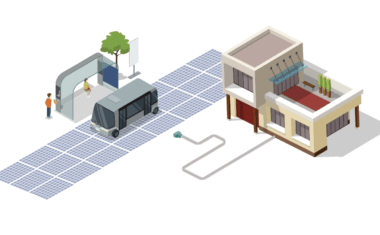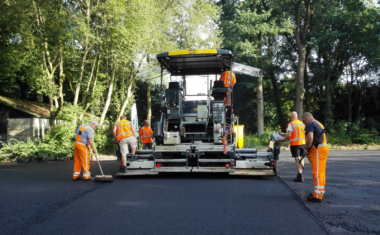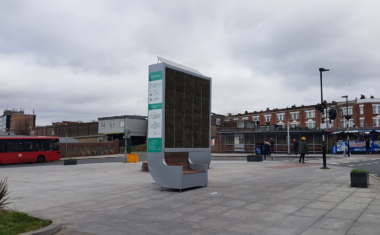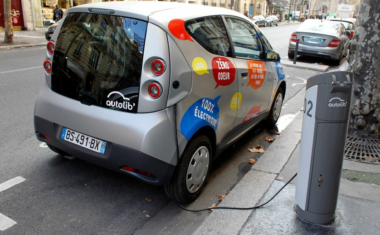Embleton Road Rain Gardens
- 5 min to read
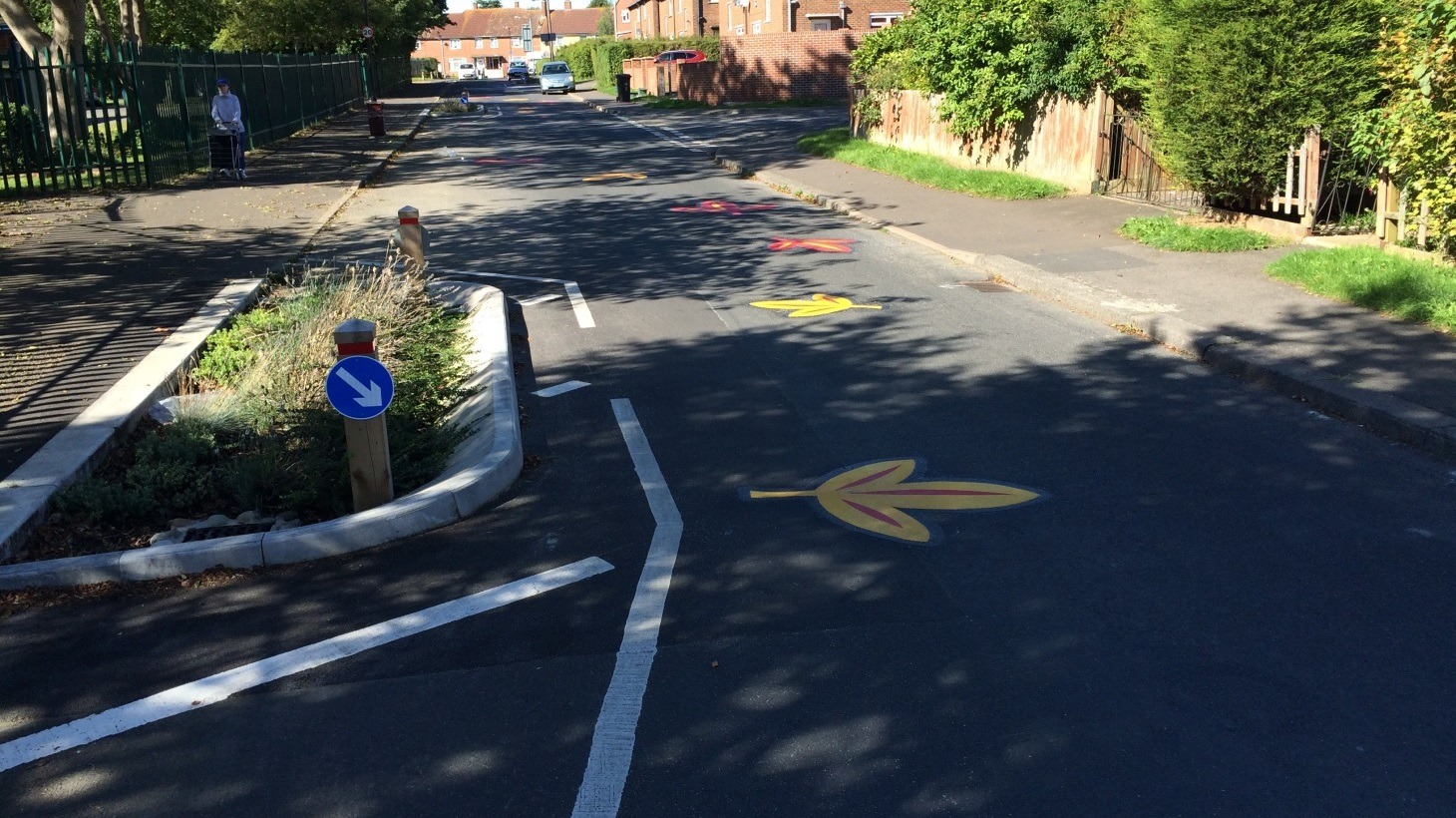
About the city. Bristol’s innovative approach to becoming a smart city is based on people, not technology: a public-private-people approach.
Goal
The aim of the project is to reduce the risk of flooding, calm traffic and increase public engagement and awareness of sustainable urban drainage systems, as well as to improve water quality in the River Trym.
Implementation period. Installation was completed in two phases – the SuDs were completed in spring 2017, followed by decorative thermoplastics on the road in autumn 2017.
Fact
The Bristol Surface Water Management Plan determined Southmead as an area that has surface water flooding issues and poor water quality in the River Trym.
Solutions
Sustrans collaborated with Bristol City Council and held a series of workshops to engage school students (Little Mead Primary Academy) and the local community in sustainable water management, road safety, street art and urban design. These workshops included a street community design workshop, during which local residents could work with a street model and trails using turf so that the community could imagine what rain gardens might look like.
Bristol City Council’s Highway Teams received projects created by the community, which they adapted and then submitted back for feedback. A total of five 10-square-metre rain gardens were redeveloped along Embleton road, and a swale was created in the existing green area next to the school. Rain gardens have been planted with wildflowers that will benefit pollinators in the area. Decorative thermoplastics inspired by children’s art were also placed on the road to further slow down the traffic.
Rain Gardens were designed to not only collect and filter surface water but also act as a means of calming traffic outside of primary schools. This project reduced the risk of flooding, as well as the speed of cars, and subsequently increased walking and cycling. The Rain Gardens and detention basin are maintained by the Bristol City Council Highways Team and were designed with maintenance in mind.
Challenges
The accumulation of leaf mulch has proven to be a particular problem that will underlie future design of inlets and placement of objects near trees. Maintenance costs are still prohibitive for future schemes, and alternative approaches such as community involvement are needed.
Team
Sustrans, Bristol City Council (Flood Risk Management and Highways teams), ARUP
Timeline
- 15,500% increase in rainwater attenuation, improved flood prevention and water quality of the River Trym.
- Interest in walking and Cycling increased by 46%.
- 14% increase in the number of drivers who now drive at less than 20 mph.
- 100% of respondents believe that the street environment has improved.
- 60% of residents surveyed believe that the new street design will encourage more people to meet.
If you notice an error or inaccuracy in our editorials, please email [email protected] so we can look into it.

